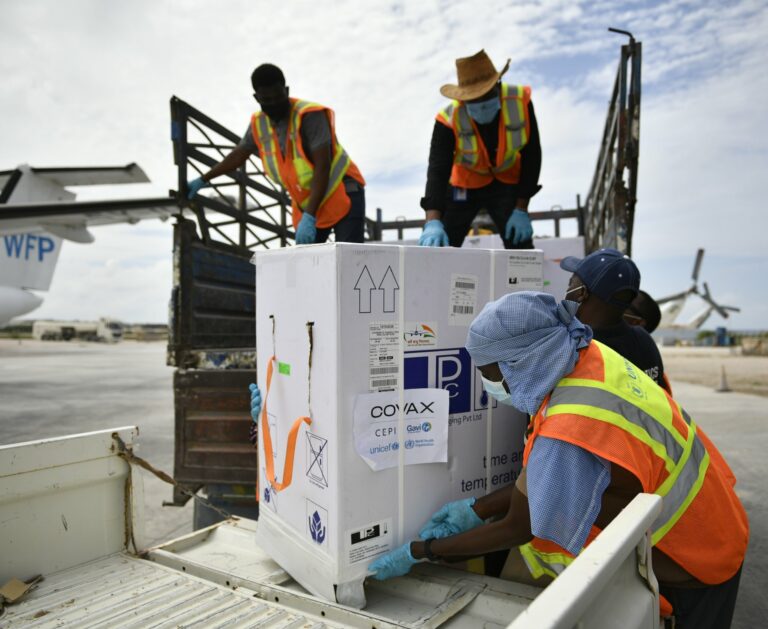Covid-19 Vaccines Global Access (COVAX)
- Founded
- March 2020
- Governance
- Co-led by the Coalition for Epidemic Preparedness Innovations (CEPI), Gavi and World Health Organization (WHO), alongside key delivery partner UNICEF.
- Funding
- The Access to Covid-19 Tools Accelerator (ACT-A), with COVAX as one of its pillars, has mobilised USD 18.9 billion in pledges from governments, as well as private sector and philanthropic contributors. The current funding gap (latest update from 29 October 2021) is USD 14.2 billion. This could be almost covered if G20 countries would pay their fair share.
- Description
COVAX is a pooled procurement and distribution mechanism that aims to provide at least 20% of the population of 92 low- and middle-income countries with vaccines. In absolute numbers, this means that COVAX had set a goal of delivering 2 billion vaccine doses by the end of 2021. Countries (mainly high-income) use it as a tool to donate vaccines and money to purchase vaccines.
COVAX, as one of the four pillars under ACT-A, was set up in response to a call from G20 leaders. ACT-A’s purpose is to accelerate the development and production of and equitable access to Covid-19 vaccines, medicines and diagnostics. The initiative does not only procure and distribute vaccines through COVAX, but also supports the development of new vaccines. It has invested USD 1.2 billion in research and development (R&D) of twelve vaccine candidates.

Strengths
- As a short-term measure, COVAX plays a critical role in the rapid and equitable delivery of vaccines.
- Shifted from proportional distribution (including to high-income countries) to prioritising the countries worst-off in vaccine coverage.
Weaknesses
- Unable to meet its own targets due to high-income countries entering into bilateral deals with vaccine manufacturers and buying up stock.
- Many high-income countries remaining behind with their donation targets.
- Maintains dependency of lower-income countries on high-income countries and right holding pharmaceutical companies.
- Lacks inclusion of low- and middle-income countries in the governance.
Review
The global need for vaccines is estimated to be 11 billion doses, out of which COVAX originally aimed to provide 2 billion by the end of 2021. The target was later reduced to 1.4 billion doses. On 15 January 2022 COVAX reached the milestone of 1 billion vaccines delivered.
COVAX (and all of ACT-A) is dependent on donations (charity), which are essential in the short-term – and need to be urgently stepped up – but this is not sustainable in the long-term. High-income countries must urgently fill the funding gap and donate doses, contributing their ‘fair share’ as calculated by the ACT-A Facilitation Council, based on countries’ ability to pay and the extent to which they benefit from an open and stable global economy.
For future funding of COVAX, ACT-A should establish a mechanism based on ability to pay, with benefits based on need, and governance (a) disconnected from the amount of the financial contribution, and (b) excluding commercial actors that have a stake in the decisions.